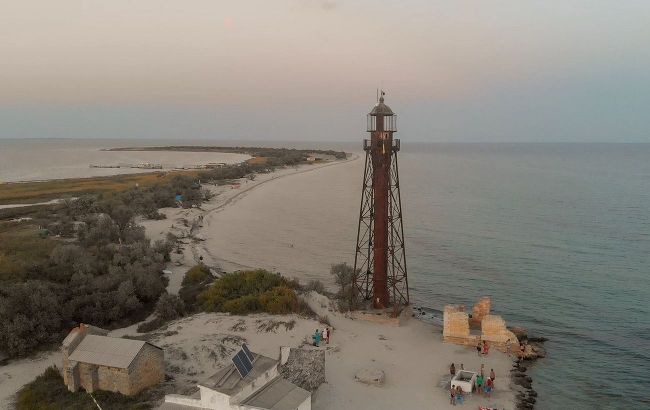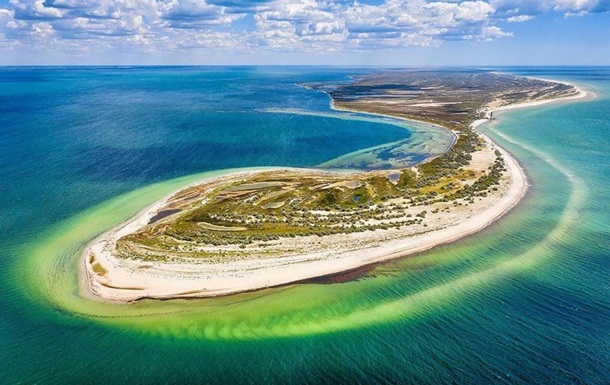Island's uniqueness lost: What Russians have done to Dzharylhach
 The fire on Dzharylhach Island nearly devastated it (photo: Getty Images)
The fire on Dzharylhach Island nearly devastated it (photo: Getty Images)
In the temporarily occupied island within Ukraine's Kherson region, a devastating fire raged for nearly a week. The flames engulfed the most valuable portion of the entire territory - a preserved area boasting unique flora and fauna. Subsequently, it was confirmed that this entire zone has been obliterated, amounting to nearly 16 kilometers of destruction.
Radio Liberty conducted an investigation into the current state of the island and the possibility of restoration.
The origins of the massive blaze
Reports indicate that the Russian occupants established a base on the island. Given the dense vegetation covering the territory, the fire could have easily ignited from a spark.
"Almost the entire preserve zone was scorched, containing the core components of valuable species and key parts of steppe ecosystems. Rare species listed in the Green Book of Ukraine were present, and the fate of these animals remains largely unknown," explained Iryna Sabashenko, Director of the Dzharylhach National Nature Park.

The Russians have connected Dzharylhach with the temporarily occupied territory of the Kherson region (photo: facebook.com/sergejonyshko)
According to Sabashenko, certain plants were so rare that the reserve was established primarily for their protection. Among them was the cicada orchid, with estimates ranging from 10 to 30 years for the recovery of the plant cover, depending on the species.
The Office of the Prosecutor General has initiated a criminal investigation into the island fire.
Oleksandr Yakovliev, Head of the Skadovsk Territorial Community, highlighted the presence of Russian military personnel still in Skadovsk, who seemed indifferent to the inferno on the island. He also noted the absence of suitable firefighting equipment.
Environmental implications
The blaze consumed the entire non-marshland area of the island. Given the island's division into wet and dry sections, approximately half of the preserved area was lost. Besides plants, wildlife could also have perished.
"Perhaps some animals were located on the periphery of the affected region and had a chance to retreat to the wetter parts of the island. In that case, this smaller group of animals might have survived," suggested ecologist Oleksii Vasyliuk.
Nevertheless, he remained convinced that the uniqueness of Dzharylhach Island had been irretrievably extinguished.

The reserved territory of Dzharylhach was filled with rare species of animals and plants (Illustrative photo: skadovsk.city)
"If we were talking with you about some area not on an island, then it could be said that it's important to look at the species in neighboring areas. They could spread from there. But this is an island in the middle of the sea. There is no neighboring area from which they could spread again. Therefore, I think it is precisely for this reason that the uniqueness of Dzharylhach has already been lost. It will already be poorer," the expert explained.
Moreover, the channel near the island has turned into a bay due to the sand dumped by Russian military forces. Now the water stagnates, becomes muddy, and this can negatively affect the fish species living there.
"There are several species of carps listed in the Red Book, there are marine grasses protected throughout Europe, and all these most valuable species, which are associated with Dzharylhach, are actually not on the mainland, but in the shallows next to it," Vasyliuk explained.
Due to the actions of the Russian army, these valuable plants and animals mentioned can disappear forever.
Furthermore, the mining of Dzharylhach is also a significant problem. Therefore, before embarking on the restoration of the reserve fund, the territory needs to be made safe, which might take several years as well.

